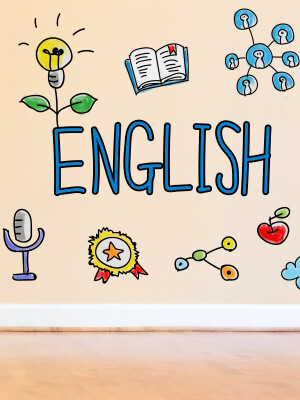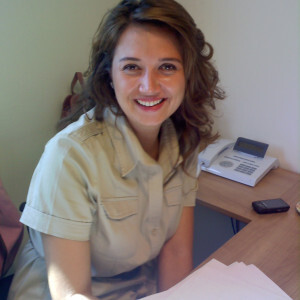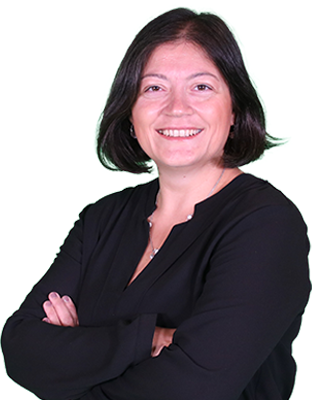Dear Students,
You can follow your registered UZEM courses by logging in via EYS (Education Management System) with the user information you use for OBS (Student Information System).You can find detailed information about password operations and username in the FAQ.
Each course consists of 14 weeks content and all courses are followed by distance education method. For all courses, online face-to-face lessons are organized at least once a month in the 2020-2021 academic semester. The purpose of these online face-to-face courses is to bring students together with the lecturers of the courses and answer questions about the course content. The days and dates of the online face-to-face classes and the connecting links are published in the announcements on the UZEM website.
If you have questions about the content of the courses, you can reach the lecturer via e-mail during working hours on weekdays or share your questions in online face-to-face meetings.
In UZEM courses, the contribution of the midterm exam to the passing grade is 40% and the contribution of the final exam to the passing grade is 60%.
ATATURK'S PRINCIPLES AND HISTORY OF TURKISH REVOLUTION

History tells us about change and transformation. It might be hard to realize this in the "history" you memorized so much in primary-middle-high school classes; but history shows us that the world we were born into is not our destiny. It gives us the good news that a new life can be established with the combination of different economic-social-cultural conditions, strong leadership, the right strategy and cooperation. We consider ourselves lucky, as we aimed in our lesson, we have the opportunity to closely monitor, scrutinize and discuss the great socio-cultural change created by a unique leader and his comrades, our grandparents whose strong leadership is an inspiration to the whole world,
We begin our lessons by examining the transformation that began in the world, in Europe. We examine the adventure of European societies to save themselves from semi-slave, to develop under the leadership of reason-science and to enslave societies that cannot keep up with them. Then, we follow the transformation efforts of the Ottoman intellectuals, bureaucrats and conscious administrators, who rebelled against this situation, in order to save the empire. Finally, we will examine the process of Mustafa Kemal Atatürk and his comrades, who realized that a radical change is not possible with an outdated, outdated political-legal-social structure and its ruling classes, and that a new state should be built from scratch, in building a new world for us.
Finally, we will examine the process of Mustafa Kemal Atatürk and his comrades, who realized that a radical change is not possible with an outdated, dilapidated political-legal-social structure and its ruling classes, and that a new state should be built from scratch, to build a new world for us. They will call us freedom or death or transformation or bondage. Together, we will see the hope, the struggle of a society for existence and freedom, its resistance, the will of people to direct their own lives with consciousness and action, and that it is always possible to build a new world.
Although history seems to examine the past, it actually examines the present and guides us for the future. We wish you all a fine academic year, with the hope that you, our young people, to whom we entrust our future, will examine the way they have come to today and establish the future as they wish.
Assist. Prof. Özgür Mutlu ULUS KARADAĞ
ozgur.ulus@acibadem.edu.tr

TURKISH LANGUAGE
Dear Students, The Turkish language course is one of the common compulsory courses that started to be taught in universities after 1980, and it is a two-semester and two-hour course per week. In the first semester of the course, which has a 14-week program each semester, we will first think about the phenomenon of "language" and try to get to know and define "language" in its different aspects.
What is language? Is it just "a tool to convey our feelings and thoughts"? Of course not. You will surely be surprised to find out how many types and layers of language there are. It is known that there are between 3500 and 5000 languages spoken in the world today. What is the origin of these languages? Did all languages originate from a single source or are there different sources? What was the first language spoken on earth? Although the human mind has been searching for answers to these questions for centuries, there are still no clear answers.
After getting familiar with such language enigmas, we will learn how and according to what the languages of the world are classified, and we will determine what features and where our mother tongue Turkish stands in this classification. You all know that Turkish is an agglutinative language in the Ural-Altaic language family, but what does this mean? What does Turkish gain or lose from this? This question should also be considered.
A long adventure awaits in the following weeks. Starting from the Orkhon Inscriptions, which is considered to be the beginning of the Turkish written language, we will witness the transformation of Turkish until today and what socio-economic, cultural, political etc. we'll see what factors play a role. In this course, in which topics such as spelling rules, punctuation marks, and types of official correspondence will be discussed, we will also read interesting articles on language, stories from distinguished authors of Turkish literature, and make long and enjoyable evaluations.
In the second semester of our course, you will see that there is a more colorful content and current topics. What are the principles of effective and beautiful speaking? What should be considered when speaking in public? etc. we will give answers to the questions and have a lot of fun with the frequent expression disorders in Turkish and the communication problems they cause. Recognizing the types of oral expression such as conferences and symposiums, and the types of written expression such as short stories and novels and their basic features will be another goal of our course. I hope that no one will refer to the article as a "story" or a story as a "novel" anymore. I wish you a successful year in which you will learn a lot and have a lot of fun while learning.
Assist. Prof. Hülya Dündar Şahin
hulya.dundar@acibadem.edu.tr
ENGLISH

Dear UZEM Students,
First of all, as the Department of Foreign Languages, we wish you all a healthy day with your families and relatives. Welcome to our university, dear youngsters! Although we could not contact you in person during the semester, we want you to know that you can contact us via e-mail whenever you want. We believe that we will overcome this process safely with the energy and support we receive from each other. In this sense, our most important suggestion to you will be to turn the problematic period into an opportunity by making your future career plans the focus of your life.
We would like to list some features of the program to show you that you can learn English effectively: You will see our course codes as 1st Semester ING111 and 2nd Semester ING112. Our program is a package of 14 weeks of video recordings. You will be able to access these courses with the password that will be given to you. Our video lessons consist of a new topic each week, as well as a repetition of the previous week, and are usually in the order of 11-12 slides. Inside these slides, you'll find less narration, more dialogue, and embedded videos. Since there is voiceover at every step, including the exercises, you can even do the exercises by wearing your headphones and just listening. Please follow your UZEM lessons on a weekly basis, aiming to spare proper time for learning. The evaluation of the course is planned as 1 midterm and final exam; the course is 2 credits.
As FOREIGN LANGUAGES ACADEMIC ENGLISH PROGRAM, our goal is to help you, our dear students, gain foreign language proficiency with our ING111 and ING112 courses, which will support and strengthen your business life and social relations both during your university education and after graduation. We wish you all a healthy and trouble-free season! We wish you success!
Lecturer Yasin Demirel
yasin.demirel@acibadem.edu.tr
MEDICAL TERMINOLOGY

Dear Students,
Medical Terminology course has been prepared in the most understandable way for you. This course includes the most basic terms that you will use in all systems, starting from basic word formations. Medical Terminology is all the words we use when explaining the organs and functioning of organs in the human body, diseases, diagnosis and treatment methods, in short, all situations related to medicine. Medical Terminology is also an important course in order to ensure accurate communication and use a common language among all medical professionals. I hope you enjoy learning the Medical Terminology course, which is one of the information you will need throughout your profession.
Lecturer Pınar Elpen Karyemez
pinar.elpen@acibadem.edu.tr
PROFESSIONAL ETHICS

The healthcare field is a broad service domain in which individuals from diverse specialties, professions, and areas of expertise work collaboratively. It brings together professionals with varying roles and responsibilities to deliver integrated healthcare services.
The aim of the Professional Ethics course is to introduce students who wish to work, pursue a profession, or specialize in the field of healthcare to the fundamental values and ethical principles of health professions, and to encourage them to reflect on why these values are essential in professional practice.
Within the scope of this course, core ethical principles and valuessuch as non-maleficence, beneficence, respect for autonomy, confidentiality and privacy, honesty, justice, and acting with an awareness of rights and responsibilities are examined. In addition, ethical issues, dilemmas, and debates that arise in professional life alongside the development of healthcare technologies are discussed.
Asst. Prof. Ceren Gülser İlikan Rasimoğlu
Ceren.Rasimoglu@acibadem.edu.tr
|
24.12.2020 |
UZEM Development Meeting-3 |
Distance Assessment-Evaluation Methods to be Applied in the End of Year Exams |
|
28.11.2020 |
ASOS Education Meeting-4 |
Faculty of Pharmacy |
|
23.10.2020 |
UZEM Development Meeting-2 |
SHMYO Co-educational Term Evaluation Meeting |
|
21.10.2020 |
UZEM Development Meeting-1 |
Faculty of Health Sciences Co-Education Period Evaluation Meeting |
|
20.10.2020 |
ASOS Education Meeting-3 |
Unit ASOS Official Academic Staff Informative Training |
|
10.10.2020 |
ASOS Education Meeting-2 |
Health Services Vocational School |
|
09.10.2020 |
ASOS Education Meeting-1 |
5İ Courses Instructors |
|
14.09.2020 |
UZEM Development Meeting |
UZEM 5(İ) Courses Content and Assessment-Evaluation |



